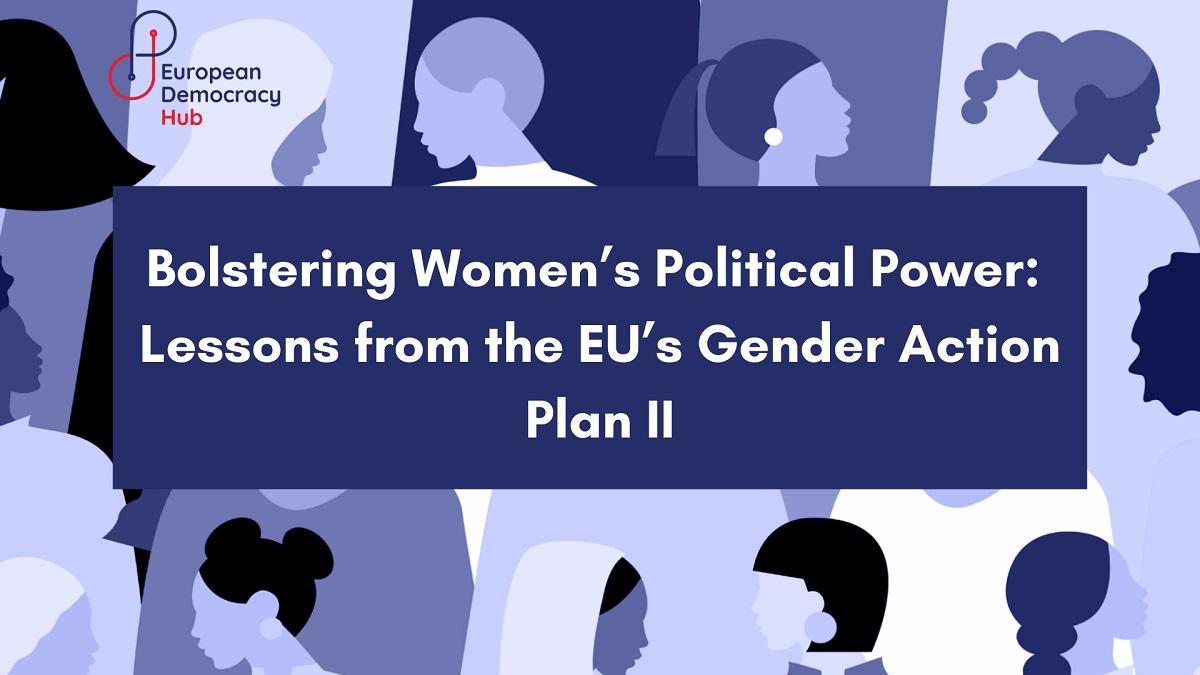In December 2020, the European Commission released its third Gender Action Plan (GAP III), which lays out how the European Union should promote gender equality in its external relations over the following five years. Just like its predecessor, the new plan highlights women’s equal political voice and participation as one of the EU’s central gender-equality priorities.
The third Gender Action Plan is a new opportunity for the EU to stand with advocates and reformers fighting for women’s equal political power around the world. To help inform the plan’s implementation process, Demo Finland has supported a research that looks at the past five years of EU support for women’s political participation. It addresses the following questions: To what extent have the EU and its member states prioritized women’s political empowerment relative to other gender-equality priorities, and what has their support been in practice? Have past EU efforts effectively tackled the primary barriers to women’s equal participation and influence, and how could the EU’s engagement be improved?
The analysis draws on the findings from four country case studies: Bosnia and Herzegovina, Morocco, Sri Lanka, and Zambia. Across the four case studies, Sweden, Germany, and Finland have played a particularly active role in promoting and supporting women’s political empowerment.
According to the research, the EU’s role in overcoming barriers to women’s political participation has been modest despite the Gender Action Plan.
The analysis reveals three overarching patterns:
- First, EU gender-equality interventions in these four countries have not systematically prioritized women’s participation in politics, relative to other gender-equality priorities. However, several member states have played more active roles in this area.
- Second, programs that have targeted political actors and processes often focused on “capacity-building” for women politicians or gender mainstreaming in state institutions. In contrast, initiatives that focus on political parties or the broader enabling environment for women in politics have generally been small.
- Third, the EU and its member states currently lack a broader theory of change linking disparate interventions within partner countries. Instead, initiatives are often fragmented, short-term, and de-linked from political dialogue.
The analysis suggests four main ways in which EU support for women’s political participation and leadership could be strengthened:
- First, women’s political rights and participation needs to be integrated into high-level policy and diplomatic engagement.
- Second, the EU needs to provide more targeted support for women’s political participation, in the form of initiatives that have gender equality in politics as their primary goal.
- Third, EU support to partner countries needs to be embedded in a context-specific theory of gender-equality change, articulated in the new Country-Level Implementation Plans.
- Fourth, the EU needs to provide more core support for feminist movements and organisations, rather than just short-term project support.
Read the paper here (opens in a new tab).
The research is part of the European Democracy Hub initiative run by Carnegie Europe and the European Partnership for Democracy. The project was funded by Demo Finland.

